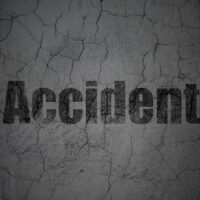Open and Obvious Property Conditions Can Affect Premises Liability Claims

Property owners are required to use a certain amount of care to ensure that their premises are properly maintained when they invite others onto that property. Landowners who fail to take these steps could open themselves up to liability if someone is injured as a result of their negligence. There are certain types of property defects, however, that can jeopardize these kinds of claims, including open and obvious dangers, so if you were injured on someone else’s property and they are denying liability and claiming that the defect was open and obvious, you should contact an experienced premises liability attorney who can walk you through your legal options.
What Qualifies as Open and Obvious?
The open and obvious rule is one of the exceptions to premises liability law in Florida and states that property owners aren’t liable for injuries sustained on their property if the injuries in question were caused by a clearly dangerous condition on the property. Essentially, visitors are expected to use reasonable care and exercise discretion in avoiding obvious dangers in plain sight, and property owners are not legally required to immediately remove the defect or warn guests about it. Only when the dangerous condition is somehow concealed, difficult to see, or invisible to the eye must property owners put up signs warning visitors, or erect barriers until the hazard can be removed.
Examples of Open and Obvious Dangers
Examples of hazards that have been ruled by courts to qualify as open and obvious include:
- Sidewalk curbs;
- Brick borders;
- Concrete blocks marking a property line;
- Wheel stops in the center of a parking space;
- Six foot planters;
- Ladders;
- Pallets located in the middle of a store parking lot;
- Raised concrete; and
- Large planks next to a walkway.
If a condition qualifies as open and obvious, the owner of the property where an injury occurred could escape liability. However, even if a property defect is considered open and obvious, a landowner could still be held liable if he or she should have anticipated that despite its obvious nature, the dangerous condition could still cause injury to visitors. Similarly, a property owner could still be held liable for an open and obvious property defect if the injured party was a minor or someone who did not have the capacity to understand the nature of the existing danger.
Legal Support in a Premises Liability Claim
Pursuing a claim where a property owner is claiming that a defect was open and obvious can be difficult, especially for those who are dealing with serious injuries. For this reason, it is particularly important for plaintiffs who were injured on someone else’s property to speak with an experienced premises liability lawyer who is well-versed in state law and can ensure that their interests are protected. For a free evaluation of your own premises liability claim, please call one of the dedicated premises liability attorneys at Boone & Davis today. You can reach a member of our legal team by calling 954-566-9919 or by sending us an online message. We look forward to addressing your questions and concerns.
Resource:
floridasupremecourt.org/content/download/375441/3240247/07-1356_JurisIni.pdf
https://www.booneanddavislaw.com/what-to-do-after-a-slip-and-fall-accident/
